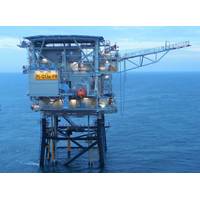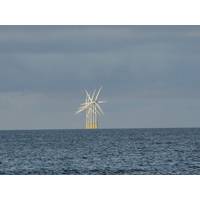
OneSubsea to Supply Subsea Wellheads for Prime Energy’s Malampaya Field
indigenous gas for the benefit of the Philippines.“Exploration and development of a late-life gas field like Malampaya requires extraordinary feats of engineering, which we are committed to deliver safely. We want to help ensure that Filipino consumers continue to enjoy stable and predictable electricity prices, a protection that we wish to continue offering for the long-term,” said Donnabel Kuizon Cruz, Prime Energy Managing Director and General Manager

Deme Offshore Joins Neptune's Hydrogen Project
helps us all to scale up after PosHYdon from 1 MW to 100 MW – a crucial step for further developing offshore wind energy and enabling conversion to hydrogen in the North Sea.“This will be important for wind farms far away from the coast which will be built after 2030, particularly given electricity prices are so low, which could slow down the further development of offshore wind farms. This development is essential to support achieving future climate targets.”Deme expertise in the field of producing green hydrogen was recently underlined with new partnerships signed via subsidiary Deme
Wind Power's Big Bet: Colossal Turbines
of gale-force winds. Economically, there are also doubts among some industry experts about whether zero-subsidy wind projects can make money, even with the increased efficiency delivered by megaturbines. They say deeper savings must be made by operators across their businesses and electricity prices must also rise significantly to bring profitability. Michael Guldbrandtsen, offshore wind consultant at MAKE, said there were financial and technical risks associated with megaturbines, but that operators had little choice but to invest in a technology needed to make zero-subsidy projects
Brexit: What’s in Store for the Subsea Sector?
connecting to the UK will qualify in the future for this funding. In five to 10 years’ time, on a cold winter’s night, these interconnectors may be keeping the lights on in the UK.” Furthermore, one of the fundamental business cases for these interconnectors was cheaper electricity prices. The wholesale price of UK electricity is currently around double that on the continent. Therefore, for each connector installed the market price of electricity in the UK goes down by 1%. This raises the question that, post-Brexit, would there be a stable regulatory and funding regime to put

Policy Uncertainty Threatens to Slow Renewable Energy Momentum
opportunities are expanding for some renewables under some country-specific conditions and policy frameworks. For example, in Brazil, with good resources and financing conditions, onshore wind has continued to outbid new-build natural gas plants in auctions. In northern Chile, high wholesale electricity prices and high irradiation levels have opened a new unsubsidised solar market. The roles of biofuels for transport and renewable heat are also increasing, though at slower rates than renewable electricity. Uncertainty over policy support for biofuels is rising in the EU and the United States,
Germans Push Renewable Energy Reform
out of control. The reforms are a collection of compromises that analysts say should slow the rise in household power prices, which are among the highest in Europe, at the expense of causing pain to some companies and to the renewable energy sector. EXEMPTIONS Germany's wholesale electricity prices are among the lowest in Europe thanks in part to a surge in wind, solar and biofuel capacity in recent years. The boom in renewables also helped drive down wholesale prices in Europe as Germany has become a major exporter of green electricity. Existing green power plants are exempted from

Renewables to Surpass Gas by 2016 in Global Power Mix
with new fossil-fuel power plants in several markets, including Brazil, Turkey and New Zealand. Solar is attractive in markets with high peak prices for electricity, for instance, those resulting from oil-fired generation. Decentralised solar photovoltaic generation costs can be lower than retail electricity prices in a number of countries. The MTRMR also sees gains for biofuels in transport and for renewable sources for heat, though at somewhat slower growth rates than renewable electricity. Biofuels output, adjusted for energy content, should account for nearly 4% of global oil demand for road transport

 February 2025
February 2025





